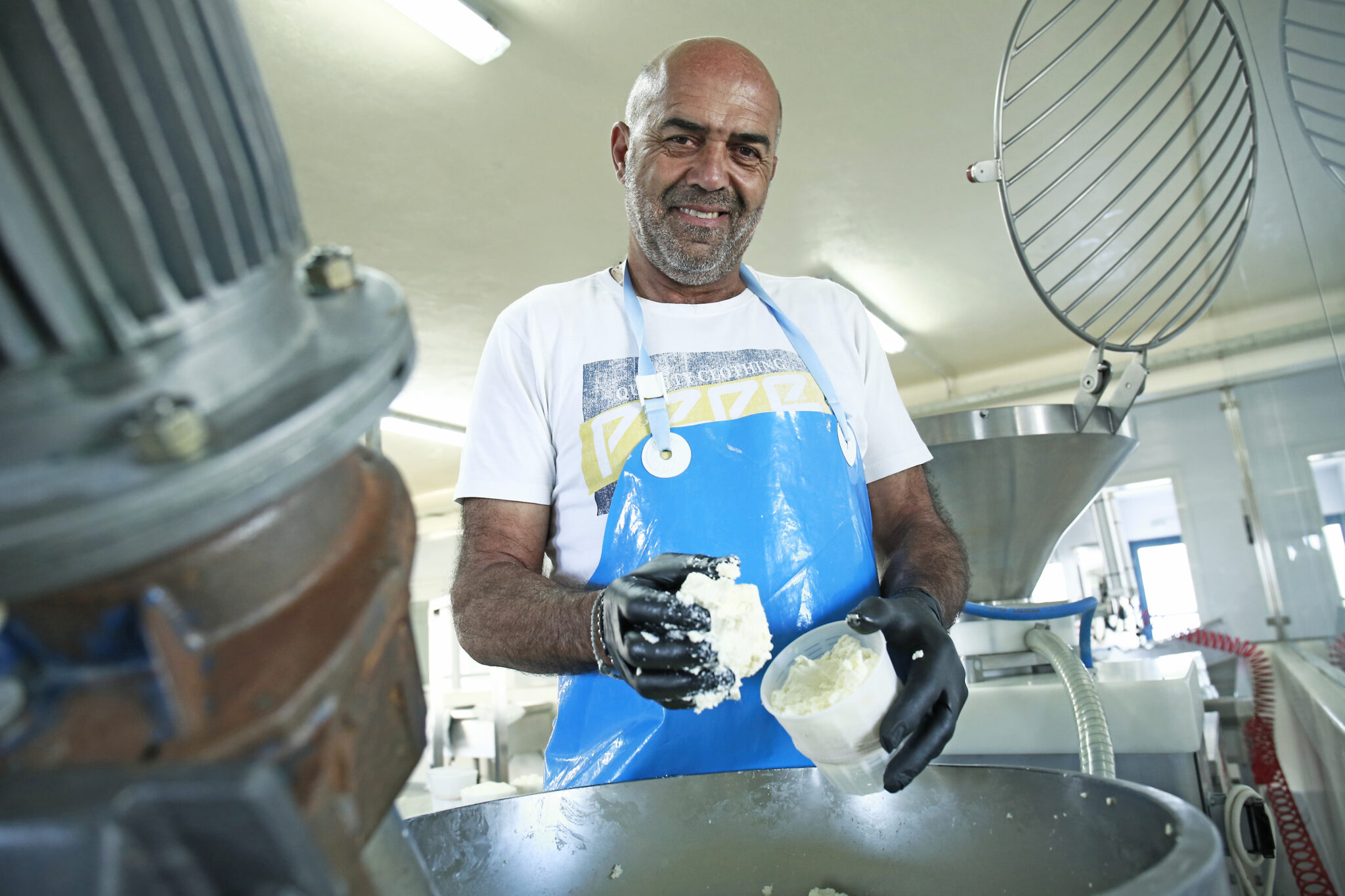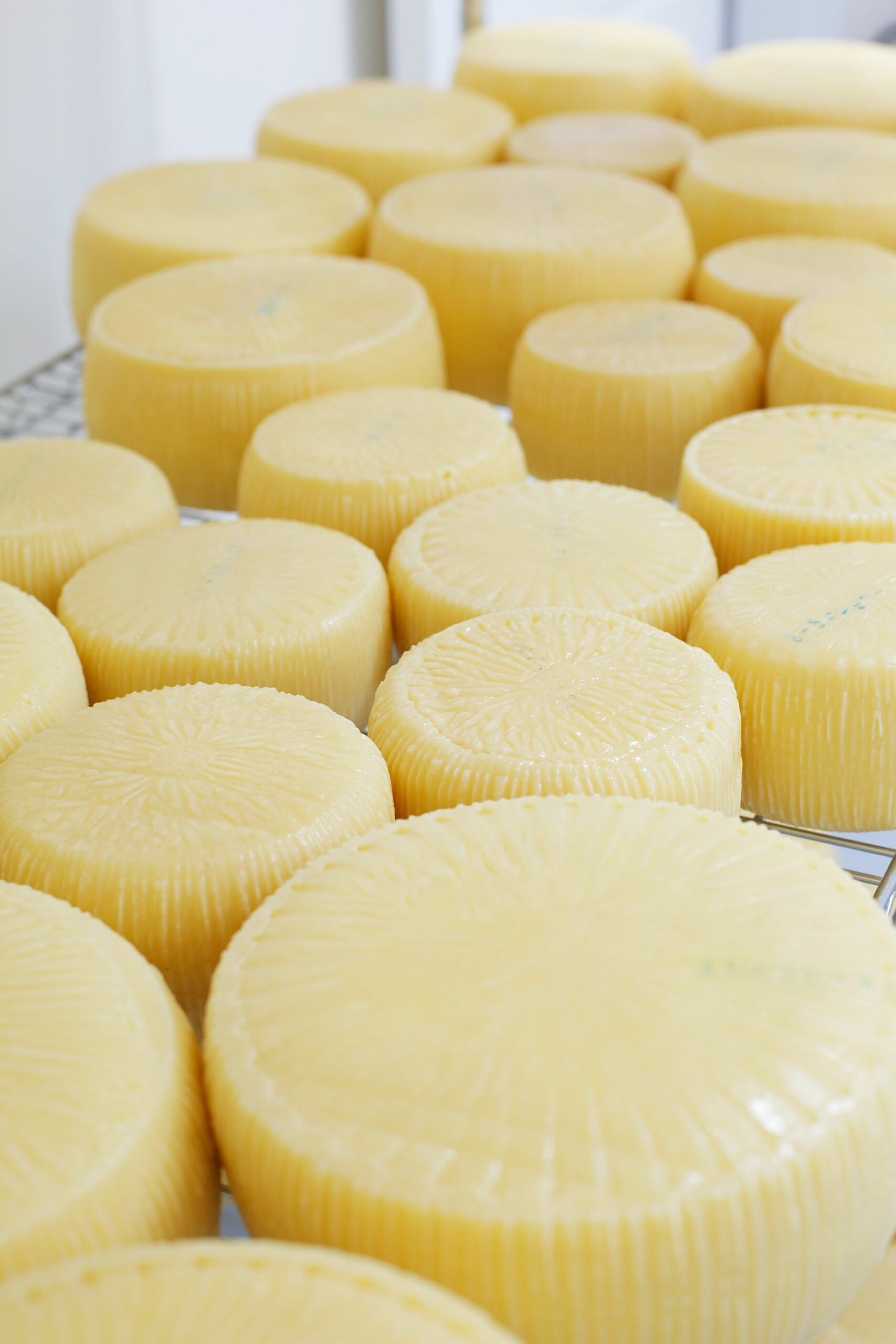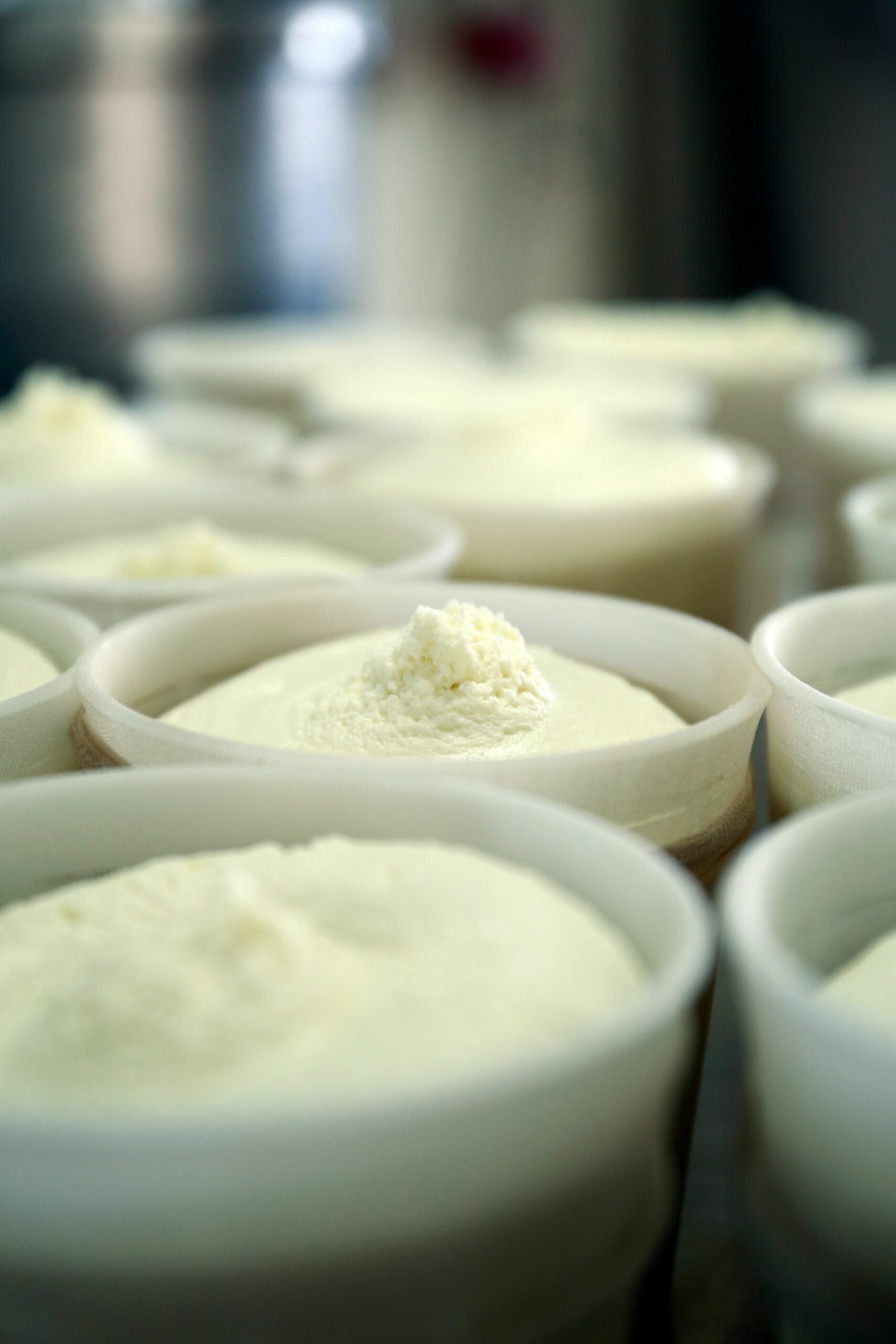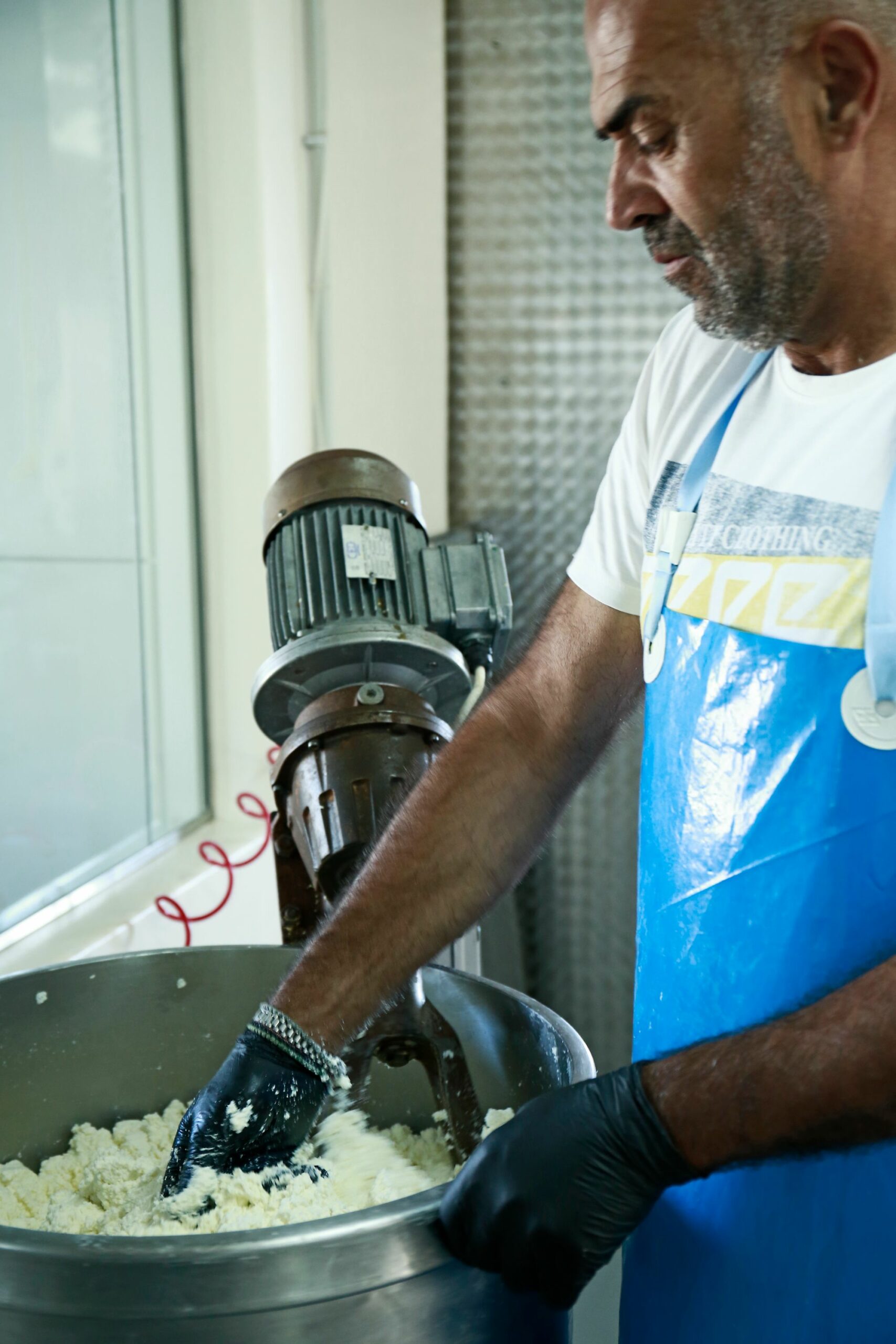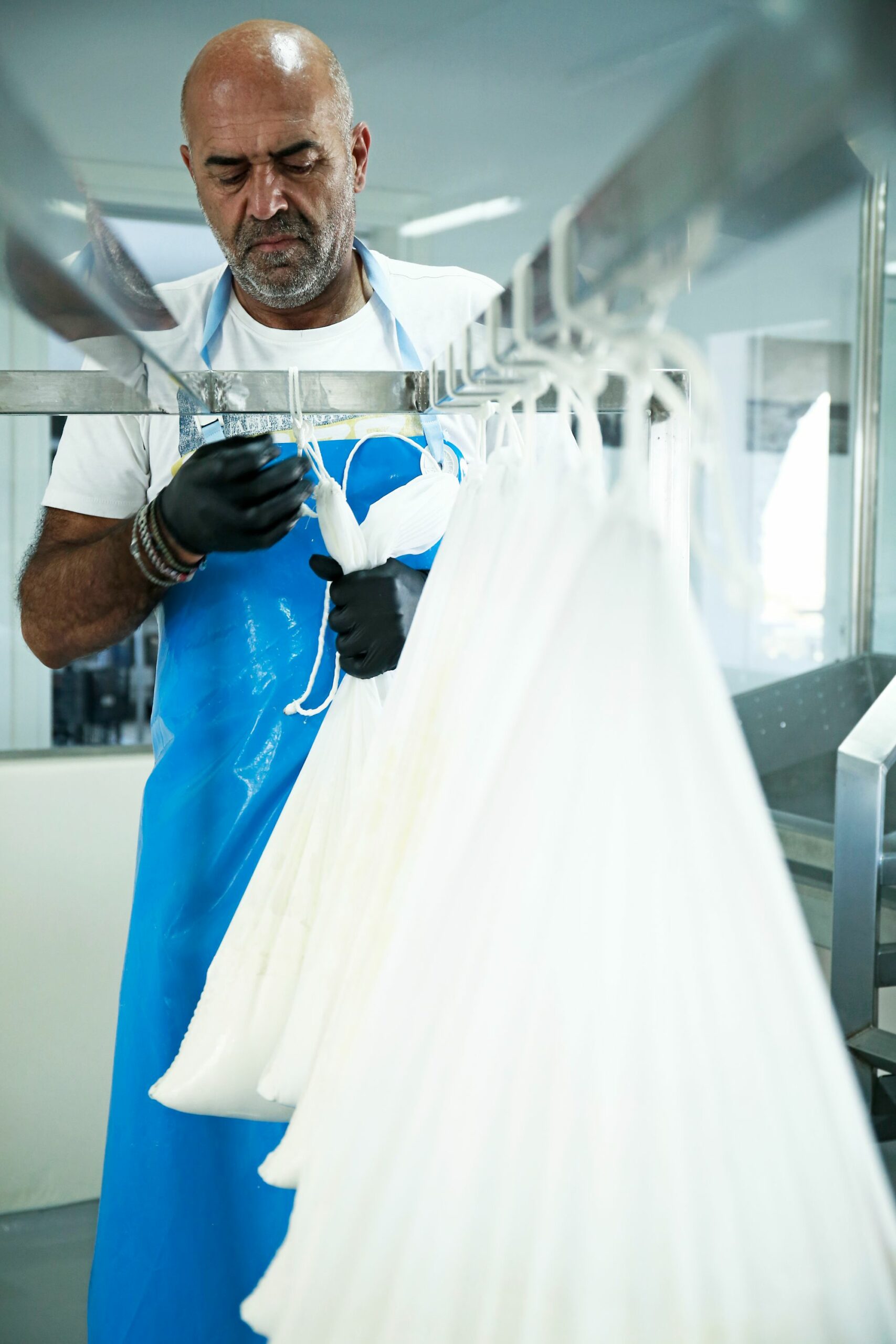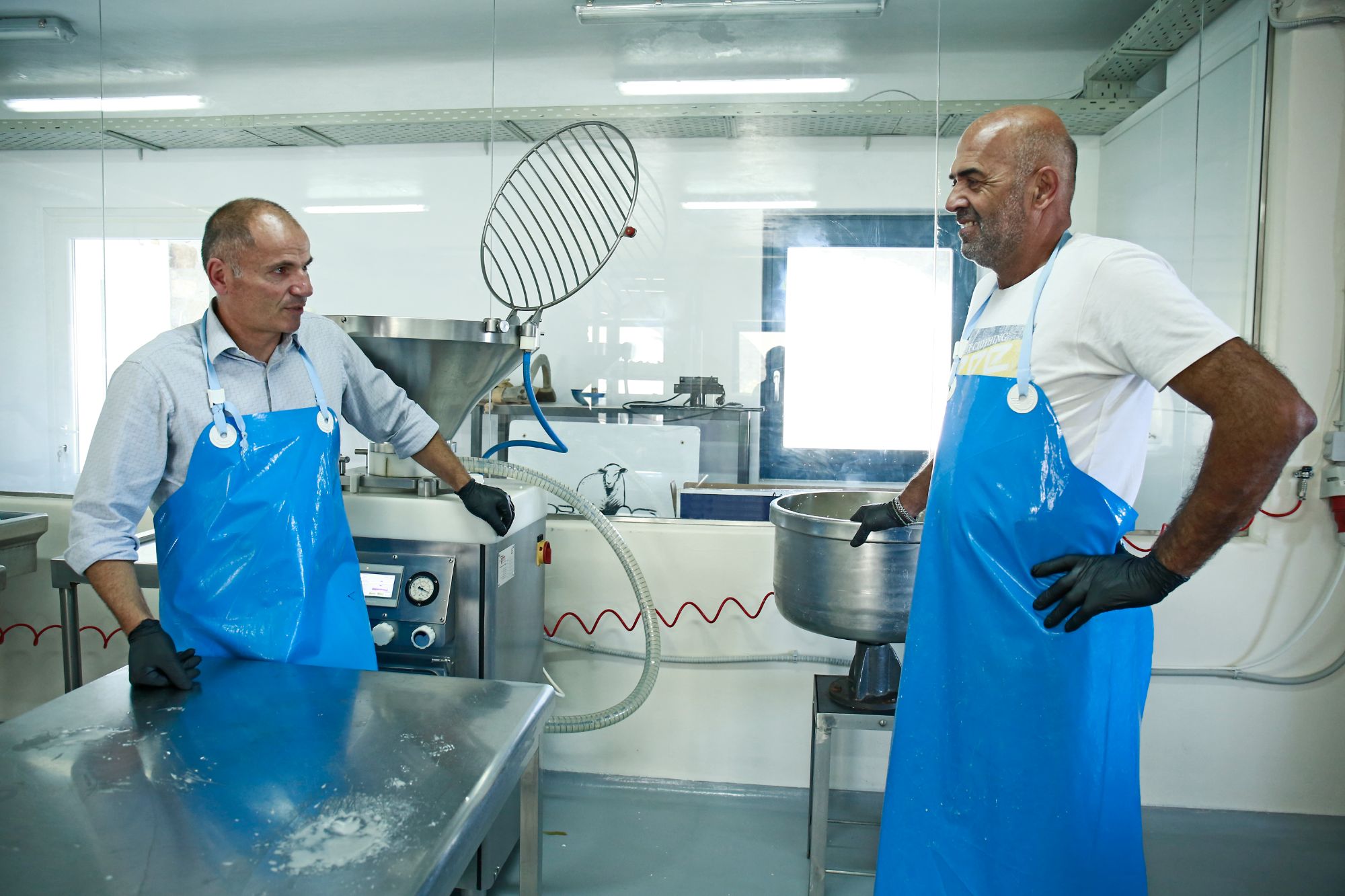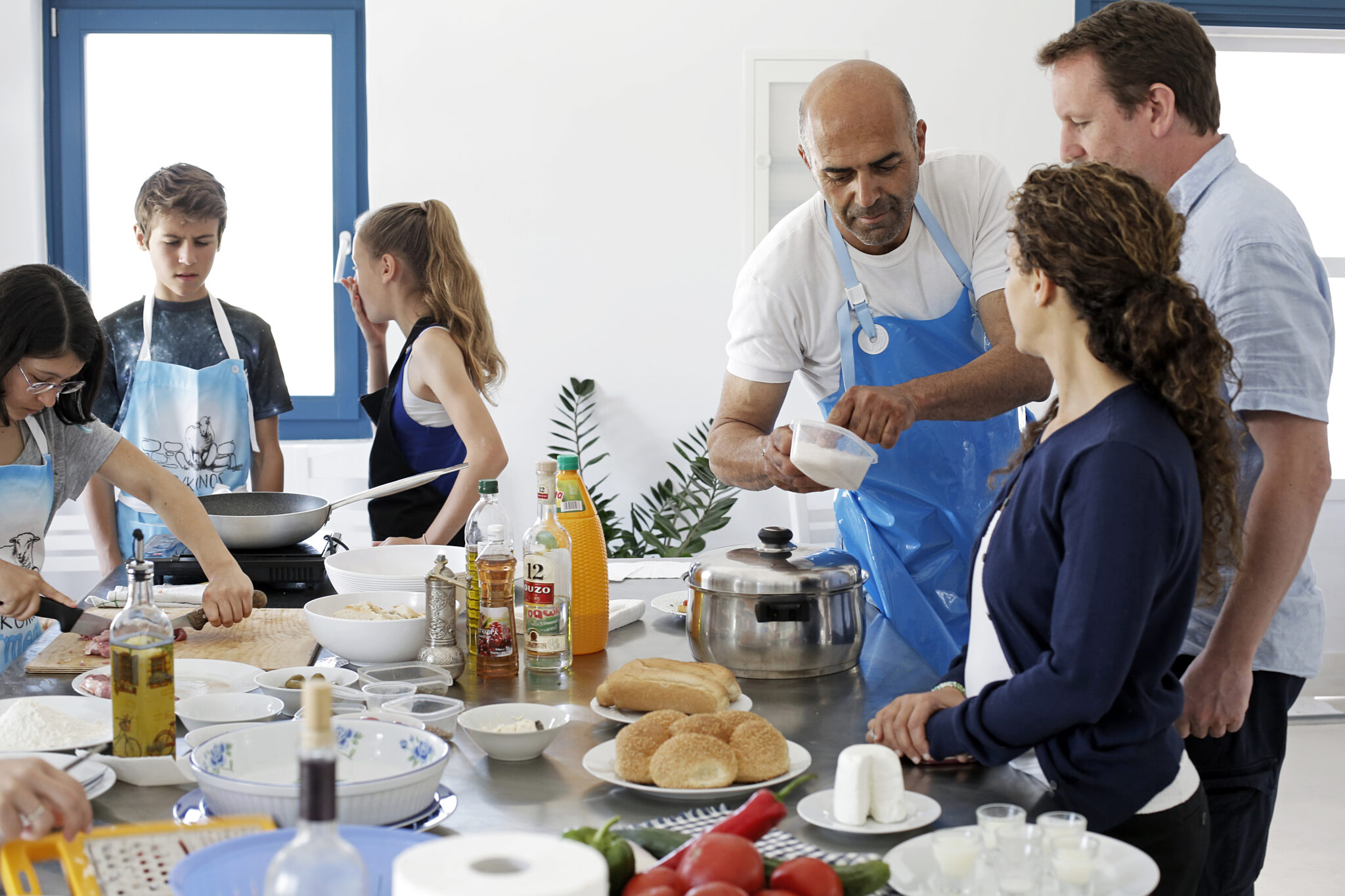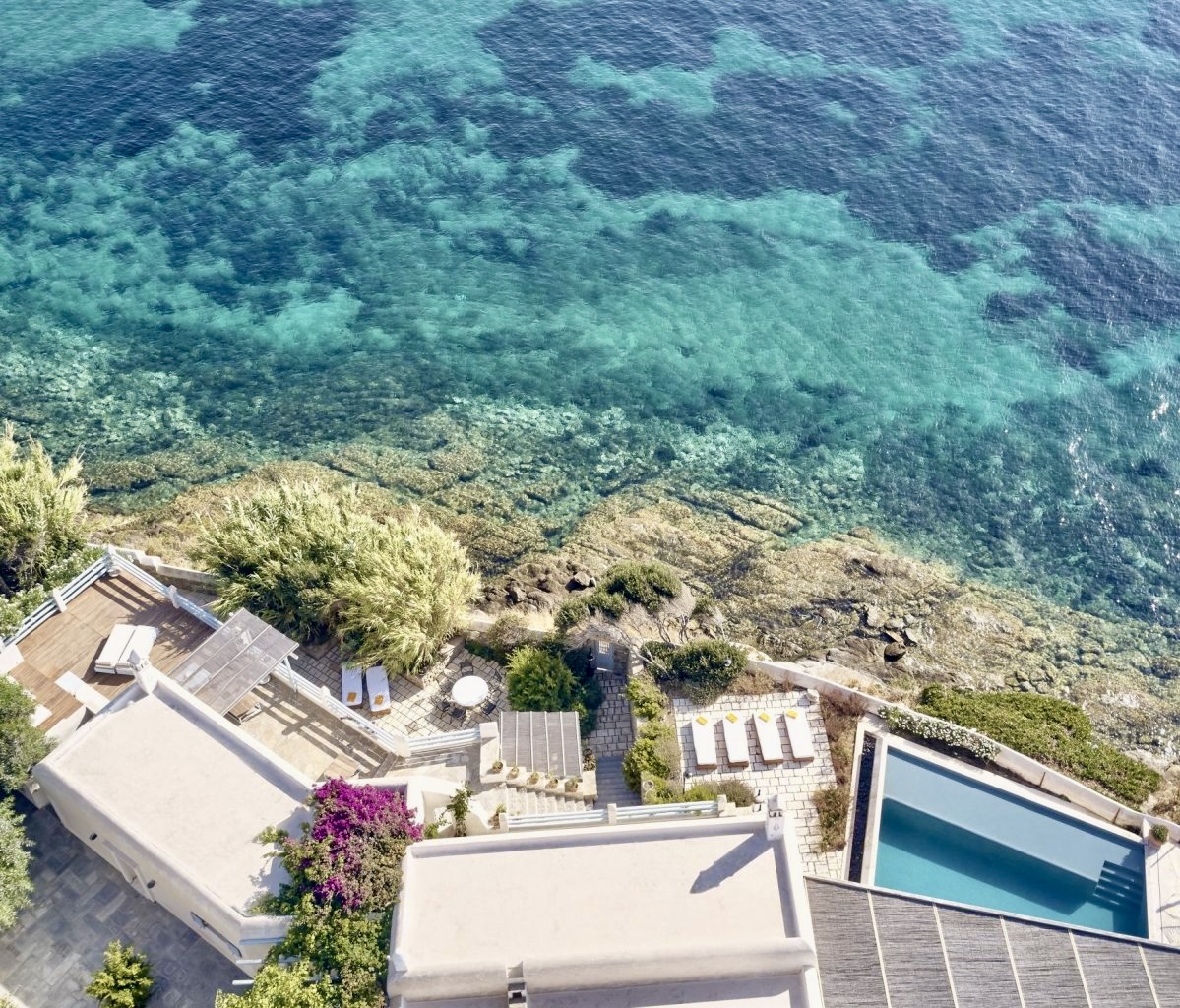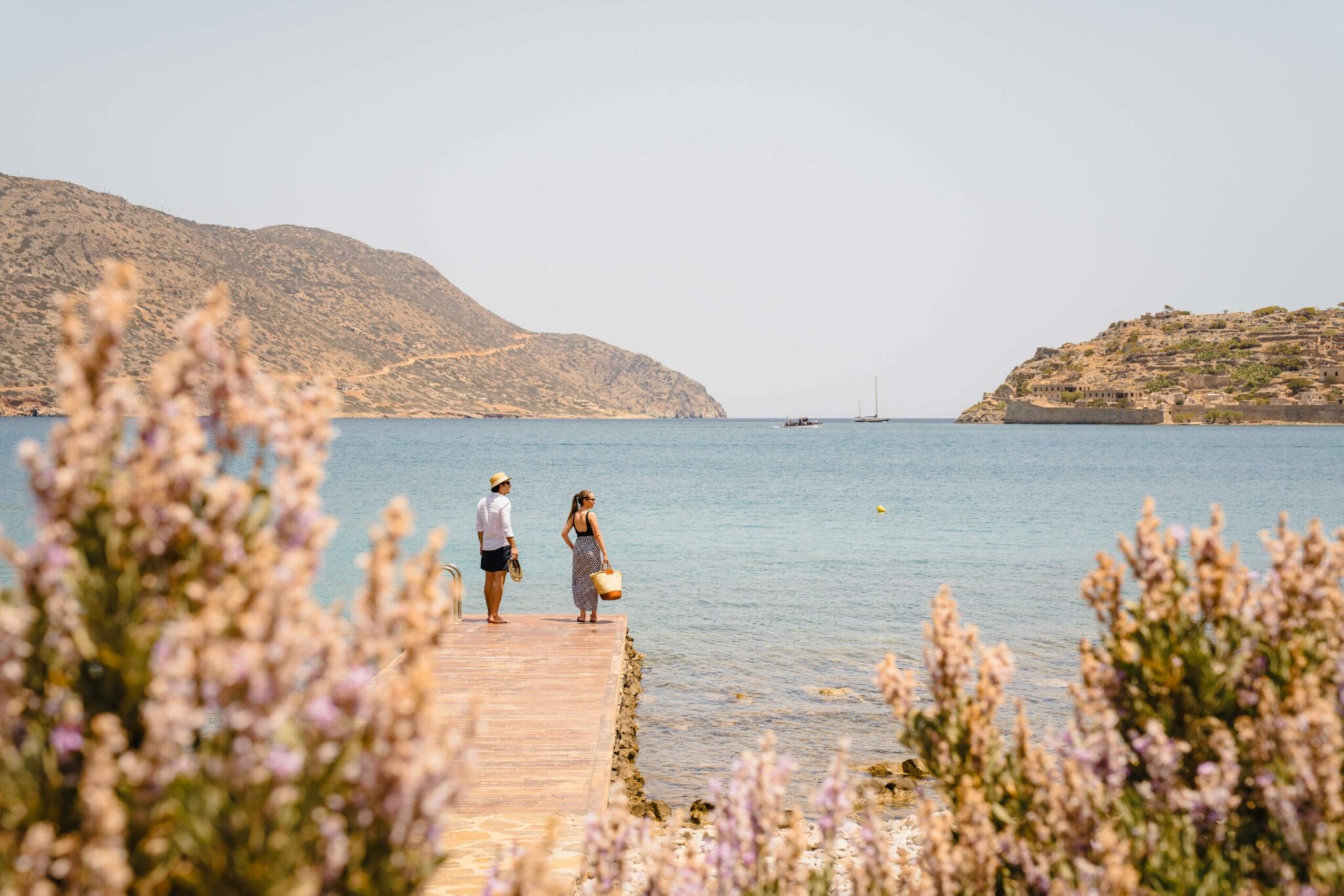I swear I felt as if the yoghurt in the clay cup, drizzled with honey, was greeting me with a bright morning smile. Standing over the small kitchen table, George Syrianos was watching me. While waiting patiently about my verdict, his smile was even brighter. Before I say anything, as stuffed as I was with velvety dew, he asked me: “Nice yogurt, Nicola?” receiving a grunt from my side in response.
Sweeping the cup’s bottom with nervous, quick movements of the spoon, making that irritating sound, trying not to miss anything, I observed the Mykonos Farmers cheese dairy, here on the hillside at Agios Lazaros; cleanliness, inox, shades of blue and religious piety in the movements.
George Syrianos is a third generation cheese maker. His family has been making cheese since he was a child and he remembers growing up between Mykonos and Rineia, where their sheep grazed (and still graze). His family has been shipping kopanisti (a PDO traditional cheese from the Cyclades with a pungent taste) to Athens for eighty years now. His partner and friend, Athanas Kousathanas, also from Mykonos, has a background in Economics and Hospitality. Together, they decided to open the dairy and since 2017 they have a regular production of kopanisti (PDO), vrasto (traditional Myconian semi-hard cheese with a strong taste of sheep’s milk), graviera (gruyere cheese), cow yogurt and niari (a premature cheese relative to kopanisti but slightly lighter in flavour).
As I observe the cheese making process, they explain to me that maintaining a traditional cheese dairy in Mykonos is not an easy task. There are high production costs due to insularity and the lack in technically qualified staff. But they are optimistic about their development and therefore they even have in mind an expansion towards agro-tourism, offering accommodation and inviting visitors to participate in the procedures, so that they get to know first-hand Mykonos’ agricultural side.
In between our conversation, while savouring this wonderfully thick, rich smell of milk and its fermentation, George’s phone rings and he can’t answer it because he’s wearing gloves full of cheese. Athanas holds the phone to George’s ear, tenderly revealing this friendly and professional coexistence.
The bowls are being filled and they have to hurry because they have an appointment with a French family who will take part in a cooking class in the bright kitchen, which has been designed especially for this purpose. Greek, Cycladic, Myconian cooking with the use of their own products.
I barely have time to taste a bit of kopanisti, this aggressively delicious PDO cheese, and take with me its spice, a reminder of its Myconian identity.



